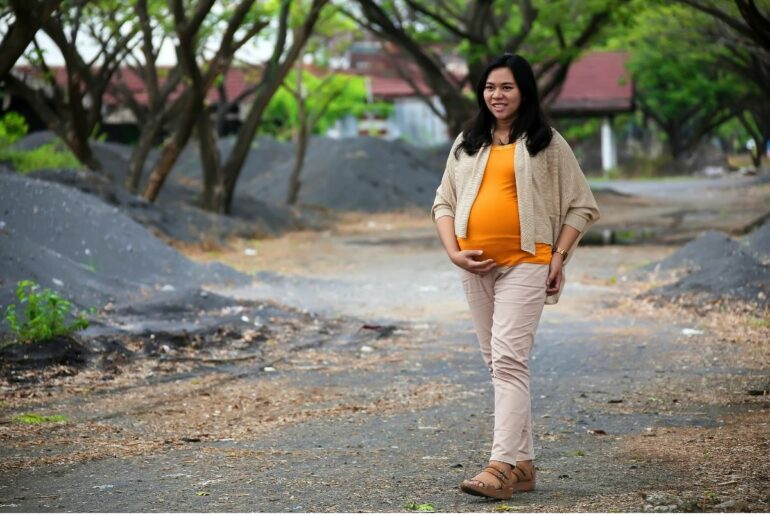Climate change impacts all families—but research shows that pregnant people can be especially vulnerable. It results in direct dangers to maternal and fetal health, through climate-driven environmental issues such as heat waves and other extreme weather events, as well as indirect risks associated with a rapidly changing environment.
The evidence of heightened risk is alarming enough that the recently released Intergovernmental Panel on Climate Change (IPCC) report, a summary of the most recent climate science, included a new section explaining the dangers that pregnant people—and fetuses—face due to the changing climate.
Research has shown that the trend in higher temperatures and more frequent natural disasters is linked to adverse outcomes like low birth weight, pregnancy loss, preterm birth, and other pregnancy and birth complications. More research is underway to understand more about the specific risks, such as which trimesters of pregnancy are most vulnerable to extreme heat.
Women and girls already face higher risks of serious harm from climate change worldwide. They’re more likely than men to be killed by weather disasters, more at risk of domestic and sexual violence after these extreme events, and more likely to suffer food insecurity as a result of climate change. Being pregnant can compound those risks.
Additionally, in the United States, the risks of pregnancy during the climate crisis are even higher for populations that are disadvantaged in the health system, such as Black women and low-income women.
In general, “climate change exacerbates existing inequalities so much,” Marlene Achoki, co-leader of global policy on climate justice for the humanitarian organization CARE, explained to Insider.
What can families do?
While the climate crisis may seem like a problem too big and scary to solve, there are many ways to get educated and get involved in reversing climate change and its widespread health and societal effects. Kids can not only learn more, but they can directly contribute.
Discuss climate change with kids. Families can’t ignore this global crisis, especially when it will affect our children’s lives. Overwhelmed? Here’s a sample script to get you started.
Write to representatives and businesses. Speak up to urge local and national leaders to take swift action on climate change. Everything from reducing carbon emissions to switching to renewable energy sources to creating less waste can help, so encourage people in power to do everything they can to push for those necessary changes.
Be more conscious of what you throw away. Talk to kids about where their trash and recycling goes, and find ways to reduce your waste as a family. Buy less plastic packaging, begin composting to eliminate food waste, research responsible ways to dispose of miscellaneous items, and avoid buying products that won’t last.
Volunteer at a local park. Get involved with existing community environmental efforts—many volunteer opportunities such as tree planting, park cleanups, and air or water quality monitoring might be appropriate for kids and families. Not only will you be making a difference, but kids will learn firsthand that there’s a whole group of people that cares enough to take action.
Encourage lifelong environmental learning. Learn about Green Careers to show kids some ways they could get involved in working against climate change in the long term. Our planet will need more climate experts, and kids can take pride in the idea that they could become part of the solution.
Find small actions to take as a family. There are a lot of other tangible ways to reduce your negative impact on the climate and develop a healthier relationship with the planet. Use this 30-day challenge for inspiration.







